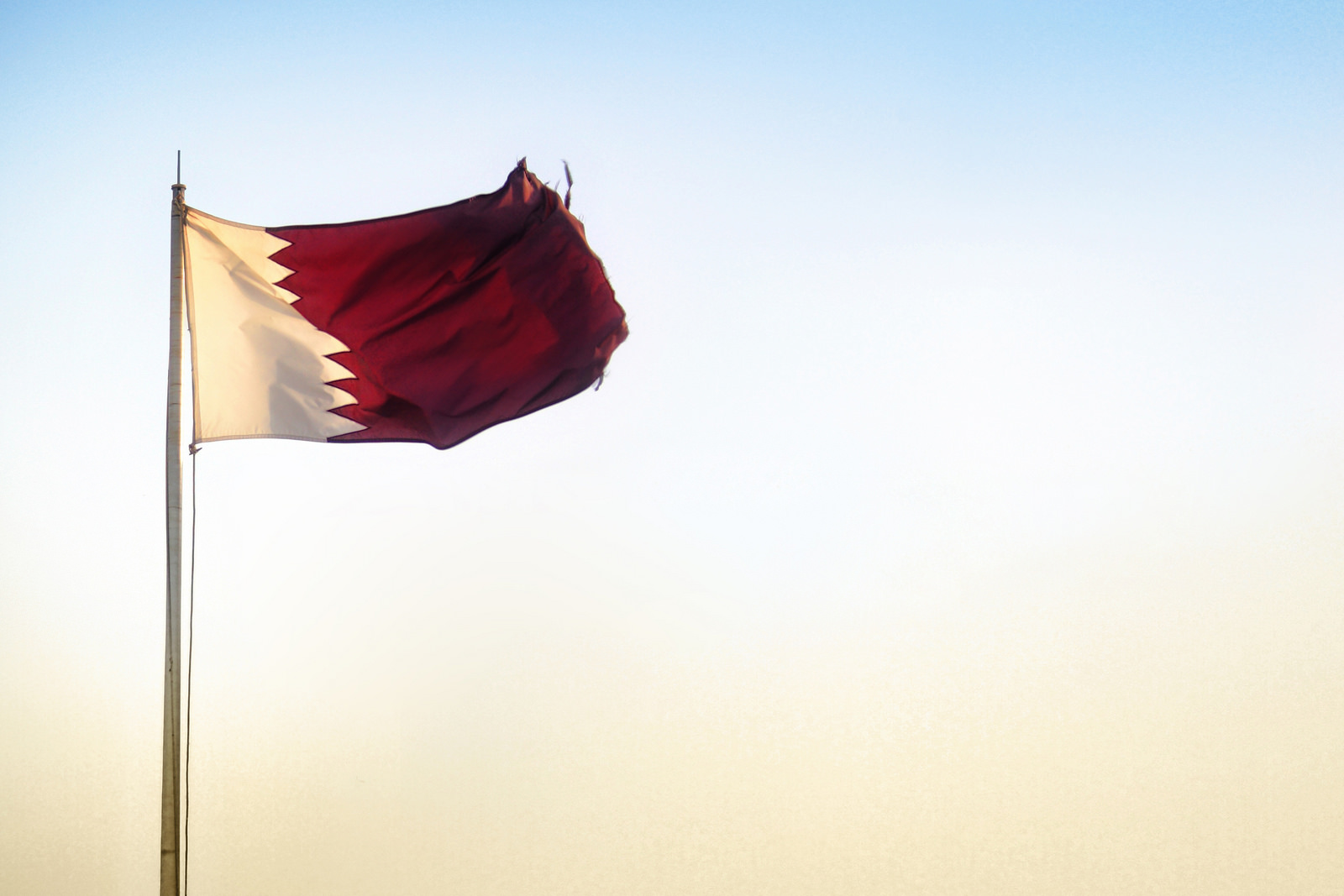Recently several Arab Gulf countries severed ties with Qatar, claiming that it interfered in its neighbor’s internal affairs and supported extremist militias in Libya, Syria and other countries. Qatar always sought to be a key player in the region by seeking strong connections with extremist groups, both non-militia and militia groups, whose beliefs were deemed terrorist in nature. Qatar seeks to be the only link between government states and terrorists, just in case any government decides to negotiate with terrorists, hence aggrandizing their political influence.
Qatar
Qatar is located on the northeastern coast of the Arabian Peninsula. Its sole land border is with Saudi Arabia to the south. In early 2017, Qatar’s total population was 2.6 million: 313,000 Qatari citizens and 2.3 million expatriates. Qatar along with Iran claim the world’s largest natural gas field. Qatar also hosts the largest US military base in the Middle East, which is Al Udeid Air Base. The sprawling base 20 miles southwest of the Qatari capital of Doha is home to some 11,000 US military personnel.
Qatar’s ambitions
Qatar wants its role to be no less than grandiose. With its investments worldwide, the Emirate consistently tries to buy itself a seat in global politics. It is worth mentioning that per a 2014 congressional research paper by Middle Eastern specialist, Christopher M. Blanchard, Qatar invested over $US 1 billion to construct an air base during the 1990s, despite having only a small air force of its own at the time. This show’s Qatar’s ambitions are nothing new, they want to have a hand and opinion in every decision in the region.
The Emirate also owns stakes in companies like Volkswagen AG, London’s Harrods and France’s LVMH Louis Vuitton Moet Hennessy, to name only a few of the big brands.
It is likewise aggressive in its investments. In addition to its Qatar Investment Authority fund – worth upwards of $US 100 billion – there is also the Doha Global Investment, worth $US 12 billion. Former French President Nicolas Sarkozy was even offered the chance to run the newly created fund.
Qatar and the Muslim Brotherhood
Over the past decades, Qatar has provided refuge for many of the Muslim Brotherhood’s leaders. The Gulf Emirate has a distinct and deep-rooted relationship with the group and has become an important location for Muslim Brotherhood symbols in the Muslim world.
The Brotherhood’s presence in the Gulf Emirate dates to the 1950s, with the first wave coming from Egypt, following conflict between the Egyptian government and the group.
The second wave came from Syria after the clash between the Muslim Brotherhood and the late Syrian President Hafez al-Assad, culminating in what was known as the events of Hama.
The third wave was from Saudi Arabia, following tensions between the Muslim Brotherhood and the Kingdom in the 1990s. The wave reached its peak after the events of September 11, 2000, preceded by an exodus from Algeria headed by Sheikh Abbasi Madani, head of the Islamic Salvation Front.
The fourth wave was after the expulsion of the leaders of the “Hamas”, headed by Khaled Meshaal, from Jordan. Following the Syrian crisis in 2000, the movement closed its offices in Syria and left for Doha.
The latest wave was after the isolation of Egyptian President Mohamed Morsi in the wake of the June 30 revolution in 2013.
The Muslim Brotherhood has succeeded in penetrating the Qatari lifeline on all levels: religiously, socially, and politically.. For example, the group played a major role in the establishment of the Ministry of Education and the formulation of educational curricula in the country and the selection of faculty members.
In addition to the shelter, Qatar provided the group with material and political support and media cover, and entered a dispute with its Gulf brothers who withdrew their ambassadors for such support in 2014.
The leaders of the Gulf accuse Qatar of supporting the Brotherhood in expanding its influence in the region. At the same time, the Brotherhood exploits this Qatari support to realize their dreams and implement their agenda in the region.
Qatar and terrorist groups
Qatar has been famous for arranging fundraisers for Al-Nusra (linked to al Qaeda), a Salafist jihadist terrorist organization fighting against Syrian government forces in the Syrian Civil War with the aim of establishing an Islamic state in the country.
A Qatari fundraising campaign for Syria called Madid Ahl al-Sham has been endorsed by al Qaeda’s affiliate in Syria, Al-Nusra Front, as a conduit for donations. Yet it could only operate for 10 months endorsing al-Nusra’s before it was shut down. It remains unclear whether Qatari authorities intervened or the organizers decided to close shop, either because they made enough money or because of the media attention.
David S. Cohen, the U.S. Treasury undersecretary for terrorism and financial intelligence, accused the Qatari authorities of allowing top financiers to live freely in the Emirate despite the fact they are on international blacklists. Speaking at a Washington think tank after a trip to the Gulf, Cohen was blunt: “There are U.S.- and UN-designated terrorist financiers in Qatar that have not been acted against under Qatari law.”
Several countries cut diplomatic ties with Qatar
Several Arab countries including Saudi Arabia and Egypt have cut diplomatic ties with Qatar, accusing it of destabilizing the region.
They say Qatar backs militant groups including so-called Islamic State (IS) and al-Qaeda, which Qatar denies.
Tensions started when Sheikh Tamim the Qatari Emir was quoted as saying: “There is no reason behind Arabs’ hostility to Iran and our [Doha’s] relationship with Israel is good.” The government in Doha dismissed the comments as fake, attributing the report to a “shameful cyber crime”.
The perplexity around Qatar
Qatar is supposed to be a major US ally in the region, yet it holds fundraisers in its territory in support for al Nusra, the terrorist militias in Syria.
So far, Washington appears unwilling to confront Qatar directly. Aside from the U.S. Treasury Department, which designated a Qatari citizen a terrorist for supporting al Qaeda in Syria and elsewhere, no senior U.S. administration officials have publicly called out Doha for its troublesome client.
For the United States, Qatar is what you call the middle man when Washington decides to negotiate with terrorists. US-Qatari relations can prove to be advantageous in the meantime, but financing terror by the Qataris can be troublesome for themselves and their allies in the future. Terrorists have loyalty for no one: they are child killers filled with hate, and when you add money to that equation, you will have terrorists with means to their purpose.







Comments (0)